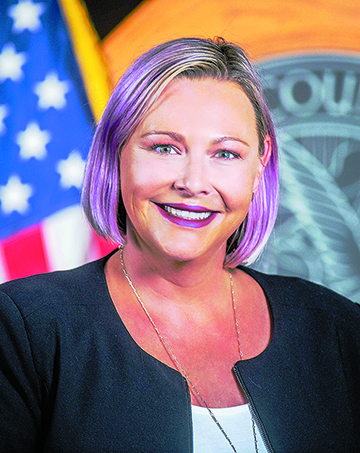by Councilwoman Amanda Sawyer

Councilwoman Amanda Sawyer is the Denver City Council representative for District 5. You can follow her on social media at @Denver Council5 and sign up for her newsletters at bit.ly/council5news.
This time last year looked very different in Denver. Run-off election results were just coming in, and the citizens had spoken loudly and clearly. When the dust settled, Mayor Hancock had won a third term, but three challengers had unseated incumbent Councilmembers — something almost unheard-of in our City that left political insiders scratching their heads and with mouths agape. What did it all mean?
As one of the winners who came into office riding that wave of political discontent last June, I believe that when the citizens of Denver chose new City Councilmembers they were saying they wanted to bring checks and balances to local government, more accountability and transparency, and more communication from their leaders.
My first year in office, I have worked hard to live by those values and bring them back to our government in a number of ways. I’ve researched how other cities with strong-mayor forms of government (like Denver’s) function, and what kinds of processes and procedures these cities use to bring balance, transparency and accountability to their communities. In my research I found something very interesting: the majority of Denver’s strong-mayor “sister” cities in the U.S. — those cities we look to when considering similar policies — participate in a process where their City Councilmembers have some form of approval power over the Mayor’s appointees. Denver is the only strong-mayor system in the State of Colorado that does not follow this practice. It’s time we institute it in Denver.
This month, I am introducing an amendment to the Denver Charter that, if referred to the voters by City Council, will require City Council approval of all Mayoral Cabinet appointees, as well as confirmation of the three heads of Denver’s Safety departments. This proposal gives Denver residents a voice through their independently elected City Council representatives. It respects our strong-mayor form of government while bringing a bit more balance to the system. If approved by voters in November 2020, it would mean that in addition to the Chiefs of Police and Fire, and the Denver Sheriff, a majority of City Councilmembers would have to approve the Executive Directors of: Aviation, City Attorney, Community Planning & Development, Dept. of Public Health & Environment, Dept. of Transportation & Infrastructure, Excise & License, Finance, General Services, Human Services, Parks & Recreation, and Safety.
This proposal is not popular with Denver’s current Mayor and his camp. Their concern is that this may overly-politicize the process and deter qualified candidates from applying for these positions. Those are valid concerns, but those risks already exist even without this Charter amendment in place. These are political appointments and public positions. These are jobs with salaries set by ordinance, and whose emails are subject to the Colorado Open Records Act. In short, they are jobs that enjoy a lower expectation of privacy than an ordinary job, and any candidate applying for one of these positions is aware of that.
Furthermore, every executive-level job search has an element of this risk associated with it, no matter whether the position is in government or the private sector. Council approving Mayoral appointments is analogous to a situation in the private sector where corporate boards approve C-suite appointments in a corporation. If a candidate for one of the most powerful positions in Denver cannot garner the support of seven members of a 13-member City Council, they shouldn’t be in the position in the first place. Instituting a process that brings more balance, transparency and accountability to our strong-mayor form of government makes sense. It is good governance. It is a policy that many other strong-mayor cities follow successfully, and it is time to bring it to Denver. This proposal will go before City Council’s Finance & Governance Committee on June 9, 2020, at 1:30 p.m. I urge you to reach out to your local City Councilmember and ask them to refer this initiative to the November 2020 ballot so that the citizens of Denver can vote on it.
